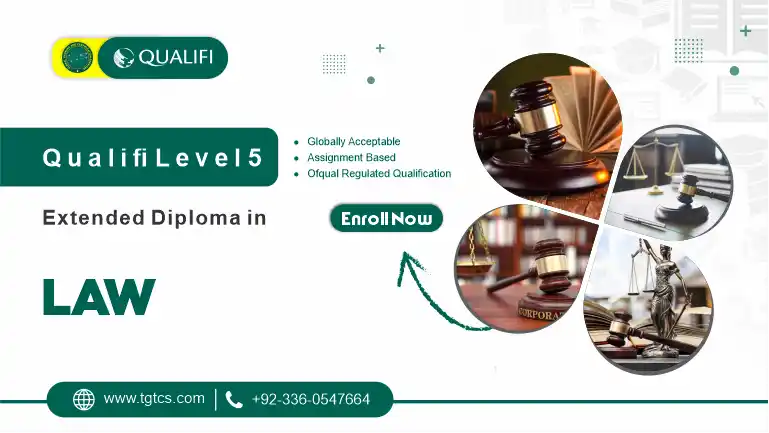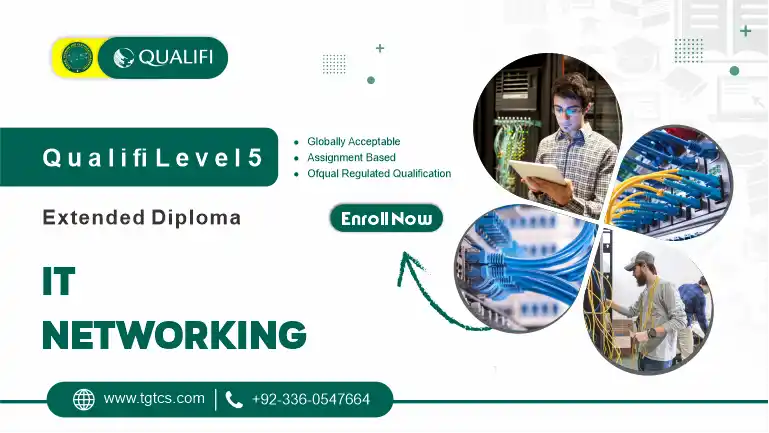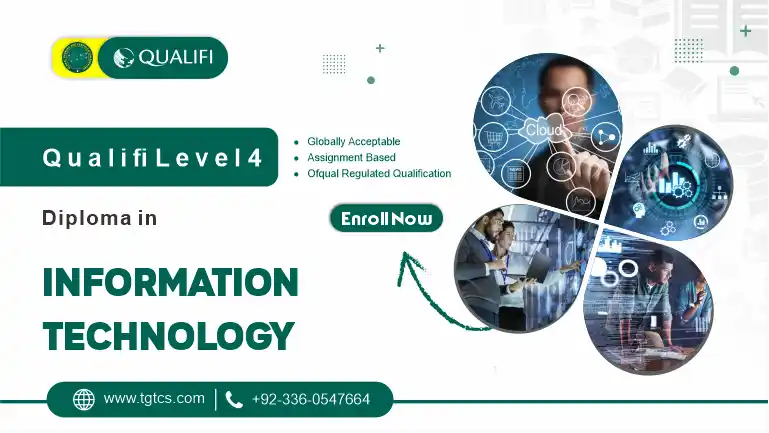ICTQual Level 5 Diploma in Electrical Engineering 240 Credits – Two Years
The ICTQual Level 5 Diploma in Electrical Engineering is the ideal qualification to help you achieve your professional goals. This two-year, 240-credit program provides students with a deep understanding of electrical engineering principles, hands-on experience, and the skills needed to succeed in a dynamic industry. Whether you’re looking to further your education, specialize in electrical systems, or start a rewarding career, this diploma offers multiple pathways for growth.
The ICTQual Level 5 Diploma in Electrical Engineering is a comprehensive two-year qualification designed to equip students with a solid foundation in electrical engineering. Covering topics like circuit analysis, electrical machines, power systems, control systems, and electrical installations, this diploma prepares students for a wide range of roles in the electrical engineering field.
The ICTQual Level 5 Diploma in Electrical Engineering is a gateway to a rewarding and dynamic career in the electrical engineering field. With a comprehensive curriculum, practical skills, and multiple progression routes, this qualification provides the foundation you need to succeed in the ever-evolving engineering landscape. Whether you want to specialize in power systems, renewable energy, or automation, this diploma prepares you for exciting and lucrative opportunities in the global job market.
The Global Training and Certification Services (TGTCS) is Directly Approved Training Centre of ICTQual
The ICTQual Level 5 Diploma in Electrical Engineering (240 Credits – Two Years) is an advanced qualification designed for individuals seeking to build a successful career in the electrical engineering field. This two-year, 240-credit program provides a comprehensive understanding of electrical systems, circuit design, power systems, control systems, and renewable energy. With a combination of theoretical learning and practical skills development, the course prepares students for a range of roles in industries such as energy, automation, construction, and telecommunications.
Throughout the course, students will cover topics like electrical circuit theory, digital systems, electrical machines, electromagnetic fields, and project management. They will also gain hands-on experience with advanced engineering concepts, including programmable logic controllers (PLCs), electrical safety, and power systems.
Upon completion, graduates are well-equipped to pursue career opportunities as electrical engineers, control systems engineers, power systems engineers, and more. Additionally, the qualification provides pathways for further studies, professional certifications, and international career opportunities. Whether entering the workforce or continuing education, this diploma lays the foundation for a successful and dynamic career in electrical engineering.
Mandatory Units
The Units of Level 5 Diploma in Electrical Engineering 240 Credits-Two Years are as :
Year 1 (120 Credits)
- Introduction to Electrical Engineering
- Engineering Mathematics
- Basic Circuit Analysis
- Electrical Machines and Transformers
- Digital Electronics
- Electrical Power Systems Fundamentals
- Electromagnetic Principles
- Health and Safety in Engineering
- Physics for Electrical Engineers
- Technical Drawing and CAD for Electrical Systems
- Introduction to Renewable Energy Systems
- Communication and Professional Skills
Year 2 (120 Credits)
- Advanced Circuit Design
- Power Electronics
- Control Systems Engineering
- Electrical Machines and Drives
- High Voltage Engineering
- Energy Management and Power Distribution
- Microcontroller and Microprocessor Systems
- Automation and Industrial Control Systems
- Instrumentation and Measurement
- Electrical System Protection and Relaying
- Project Management for Engineers
- Capstone Project in Electrical Engineering
Here are the learning outcomes for each of the study units in the ICTQual Level 5 Diploma in Electrical Engineering program:
Year 1 (120 Credits)
- Electrical Engineering Fundamentals
- Understand basic electrical concepts such as voltage, current, resistance, and power.
- Apply Ohm’s Law and Kirchhoff’s Laws for analyzing electrical circuits.
- Demonstrate foundational knowledge in electrical engineering principles.
- Electrical Circuit Theory
- Analyze DC and AC circuits, including series and parallel configurations.
- Calculate current, voltage, power, and impedance across circuits.
- Apply Kirchhoff’s laws to solve complex circuit problems.
- Electronics and Semiconductor Devices
- Understand semiconductor materials and components.
- Analyze the operation of diodes, transistors, and other semiconductor devices.
- Apply electronics principles in practical applications like amplifiers and oscillators.
- Mathematics for Engineers
- Solve engineering problems using calculus, linear algebra, and differential equations.
- Apply mathematical techniques to electrical engineering applications like circuit analysis and signal processing.
- Demonstrate proficiency in mathematical problem-solving for engineering scenarios.
- Electrical Power Systems
- Understand the generation, transmission, and distribution of electrical power.
- Analyze electrical grids, power flow, fault analysis, and protection systems.
- Explore power system stability and efficiency principles.
- Control Systems and Instrumentation
- Understand feedback control systems and their components.
- Design and analyze basic control systems in electrical engineering.
- Evaluate and apply instrumentation systems for controlling and measuring electrical variables.
- Electrical Machines and Transformers
- Analyze the operation of electrical machines like motors and generators.
- Understand transformer principles including efficiency, voltage regulation, and power transfer.
- Apply these principles in real-world applications like energy conversion and motor control.
- Engineering Materials and Electrical Components
- Understand the properties and applications of materials used in electrical engineering.
- Identify and apply electrical components such as resistors, capacitors, and inductors.
- Evaluate the suitability of materials for various electrical engineering projects.
- Electrical Safety and Risk Management
- Recognize electrical hazards and implement safety practices in engineering environments.
- Understand relevant electrical safety regulations and standards.
- Assess and manage risks associated with electrical systems and equipment.
- Renewable Energy Systems
- Understand renewable energy sources like solar, wind, and hydroelectric power.
- Evaluate how renewable systems can be integrated into existing electrical power grids.
- Analyze the challenges and benefits of sustainable energy solutions.
Year 2 (120 Credits)
- Advanced Electrical Circuit Analysis
- Apply advanced techniques to analyze complex AC and DC circuits, including resonance and impedance.
- Design and analyze filters and network systems.
- Use simulation tools for circuit analysis and optimization.
- Microprocessors and Microcontrollers
- Understand microprocessor and microcontroller architecture and functions.
- Program microcontrollers to interface with electrical systems.
- Design embedded systems for electrical engineering applications.
- Electromagnetic Fields and Waves
- Understand electromagnetism, including Maxwell’s equations and wave propagation.
- Analyze the behavior of electromagnetic fields in materials and environments.
- Apply electromagnetic theory to the design of electrical systems such as transmission lines and antennas.
- Power Electronics and Electrical Drives
- Understand power electronics devices such as thyristors, IGBTs, and MOSFETs.
- Design and analyze electrical drives and converters for industrial applications.
- Evaluate power electronic circuits’ efficiency and performance.
- Electrical System Design and Simulation
- Apply design principles to develop electrical systems for specific applications.
- Use simulation tools to model and test electrical systems.
- Optimize electrical system designs for performance and cost.
- Energy Management and Optimization
- Understand techniques for managing energy consumption and reducing waste.
- Analyze energy usage and propose optimization strategies.
- Apply energy efficiency principles in industrial and commercial contexts.
- Advanced Control Systems
- Design and analyze advanced control systems, including PID and state-space controllers.
- Apply control theories to complex electrical systems like robotics and automation.
- Evaluate system stability, performance, and response.
- Industrial Automation and Robotics
- Understand the principles of industrial automation and robotics.
- Design and implement automated control systems using PLCs and industrial controllers.
- Apply robotics technology in manufacturing and automation systems.
- Power Generation and Distribution Networks
- Analyze the design and operation of power generation facilities like thermal, hydro, and nuclear plants.
- Evaluate the operation of electrical distribution networks including substations and transformers.
- Understand the impact of smart grid technologies on power generation and distribution.
- Electrical Engineering Project Management
- Apply project management principles to electrical engineering projects.
- Understand budgeting, resource allocation, and risk management.
- Demonstrate leadership and teamwork skills in managing engineering projects.
- Advanced Renewable Energy Systems
- Study advanced renewable energy technologies such as photovoltaic systems, wind turbines, and biomass.
- Evaluate the integration of renewable energy into national grids.
- Design and optimize renewable energy systems for efficiency and sustainability.
- Electrical Maintenance and Fault Diagnosis
- Understand maintenance strategies for electrical systems and equipment.
- Develop techniques for diagnosing faults in electrical systems.
- Apply diagnostic tools to identify and resolve electrical faults.
- Sustainable Electrical Engineering Solutions
- Explore energy-efficient design and low-carbon technologies.
- Apply green engineering principles to electrical system design.
- Evaluate the environmental impact of electrical engineering projects and propose sustainable solutions.
- Engineering Ethics and Professionalism
- Understand the ethical responsibilities of electrical engineers.
- Explore professional standards and codes of conduct for electrical engineers.
- Apply ethical decision-making in real-world engineering situations.
- Comprehensive Skill Development
- This course provides a thorough understanding of key electrical engineering concepts, such as electrical circuit theory, power systems, control systems, and renewable energy technologies. You’ll develop technical, analytical, and problem-solving skills that are essential for a successful career in the field.
- Practical and Theoretical Knowledge
- The curriculum combines both theoretical knowledge and practical application. By working on real-world projects and gaining hands-on experience, you’ll develop the necessary skills to design, analyze, and maintain electrical systems across a range of industries.
- Strong Industry Relevance
- The course is designed with input from industry professionals, ensuring that the content is up-to-date and aligned with current industry needs. This ensures you are equipped with the most relevant skills for the modern electrical engineering sector.
- Advanced Learning in Renewable Energy
- With an increasing demand for sustainable energy solutions, this diploma covers advanced topics in renewable energy systems, including solar, wind, and hydroelectric power. This specialization allows you to be at the forefront of green technology and energy efficiency.
- Hands-on Experience with Cutting-Edge Technologies
- Gain exposure to microprocessors, microcontrollers, power electronics, industrial automation, and robotics, which are crucial in today’s electrical engineering landscape. By mastering these technologies, you can enter various sectors such as manufacturing, robotics, energy, and automation.
- Progression to Higher Education or Professional Certification
- The Level 5 Diploma provides a solid foundation for progression to a Bachelor’s degree or Master’s degree in Electrical Engineering or related fields. It also opens the door to obtaining professional certifications such as Chartered Engineer status (CEng), enhancing your career opportunities and standing in the industry.
- High Employability and Career Flexibility
- Graduates of this course are well-prepared for a wide range of roles in electrical engineering, such as electrical design engineer, power systems engineer, control systems engineer, and energy engineer. The skills acquired during the course will make you highly attractive to employers in various industries, including energy, automation, manufacturing, and technology.
- International Career Opportunities
- With electrical engineering being a globally recognized field, this qualification opens doors to international career opportunities. Many countries value vocational and technical qualifications, and you may find roles in global industries such as construction, automotive, aerospace, and energy.
- Strong Focus on Safety and Risk Management
- Electrical safety and risk management are key components of this course, ensuring that you understand the importance of adhering to safety standards and minimizing risks when working with electrical systems. This knowledge is critical for maintaining workplace safety and meeting industry regulations.
- Opportunity for Entrepreneurship
- The course provides a solid foundation for those interested in starting their own business or engineering consultancy. With knowledge in project management, design, and electrical systems, you can venture into entrepreneurial projects in sectors like electrical system design, energy management, and automation.
- Support for Career Growth
- The course offers a range of learning materials, expert instruction, and ongoing support, ensuring that you have the resources needed to succeed. Whether you’re advancing in your current job or looking to switch industries, the Level 5 Diploma equips you with the skills for career advancement.
- Enhanced Problem-Solving and Critical Thinking Skills
- Throughout the course, you’ll be encouraged to think critically and creatively when solving complex engineering problems. The practical approach to learning fosters a problem-solving mindset that will be beneficial in any engineering role.
By completing the ICTQual Level 5 Diploma in Electrical Engineering, you’ll acquire a robust skill set, gain industry-relevant knowledge, and open up numerous pathways for career growth and further education in electrical engineering.
The ICTQual Level 5 Diploma in Electrical Engineering is designed for individuals who are keen to build a strong foundation in electrical engineering and pursue a successful career in the field. The ideal learner for this course would have the following characteristics:
- Aspiring Engineers with a Passion for Electrical Systems
- The ideal learner has a strong interest in electrical engineering, whether it be in power systems, renewable energy, electronics, or control systems. They are eager to understand how electrical systems function and are motivated to learn how to design, analyze, and maintain these systems.
- Technical Background or Relevant Experience
- While not mandatory, learners who have a background in mathematics, physics, or engineering-related subjects will find it easier to grasp the technical concepts covered in the course. Those with prior hands-on experience or foundational knowledge in electrical or mechanical systems will also benefit from a smoother learning experience.
- Problem-Solvers and Critical Thinkers
- The course emphasizes practical problem-solving, where students will face real-world engineering challenges. Ideal learners should enjoy troubleshooting, finding solutions to complex problems, and applying theoretical knowledge to practical situations.
- Motivated and Career-Focused Individuals
- This diploma is suitable for individuals who are looking to advance their career in electrical engineering, whether they are seeking to enter the workforce or enhance their existing skills. Ideal learners are motivated by career progression and the opportunities that the field of electrical engineering provides in sectors like energy, automation, manufacturing, and electronics.
- Goal-Oriented and Self-Disciplined
- The Level 5 Diploma is an intensive two-year program that requires dedication, time management, and a strong work ethic. The ideal learner will be able to balance coursework, assignments, and practical projects effectively and stay committed to achieving their educational goals.
- Aspiring to Specialize in Renewable Energy or Advanced Electrical Systems
- The ideal learner is particularly interested in emerging fields such as renewable energy systems (solar, wind, hydroelectric), industrial automation, or electrical drives and robotics. This diploma offers an excellent pathway to specialize in these high-demand areas of electrical engineering.
- Individuals Seeking Professional Recognition
- Learners who are aiming to pursue professional certifications, such as Chartered Engineer status (CEng), will benefit from the comprehensive education provided by this diploma. Ideal learners are looking for a qualification that supports career growth and increases employability in the global engineering market.
- Ambitious Learners Who Plan to Continue Their Studies
- This course is also perfect for individuals planning to pursue further education, such as a Bachelor’s or Master’s degree in Electrical Engineering. The ideal learner may want to advance to higher-level academic qualifications or transition into leadership roles in the future.
- Entrepreneurs and Innovators
- Individuals interested in starting their own engineering consultancy or business in electrical engineering will benefit from the skills learned throughout this course, especially in areas like project management, energy management, and electrical system design.
- International Career Seekers
- Given the global demand for electrical engineers, the ideal learner is someone who is open to exploring job opportunities in international markets. Whether it’s in power generation, automation, or energy systems, the Level 5 Diploma provides the knowledge and skills needed for global career opportunities.
The ICTQual Level 5 Diploma in Electrical Engineering is ideal for anyone who is passionate about electrical systems, ready to engage with complex engineering challenges, and eager to take the next step in their professional or academic journey in the field of electrical engineering.
Upon completing the ICTQual Level 5 Diploma in Electrical Engineering (240 Credits – Two Years), graduates can explore various opportunities for further education and career advancement. This qualification opens doors to higher study, professional growth, and diverse career paths within the electrical engineering sector and beyond. Here are some potential progression routes for students:
1. Further Academic Qualifications
- Top-up Degrees: Graduates can advance to a Bachelor’s Degree (BEng) in Electrical Engineering or a related field. Many universities offer top-up degree programs that allow students to complete the final year of a degree after earning a Level 5 diploma, enabling them to specialize in areas like renewable energy, automation, or power systems.
- Postgraduate Studies (MSc): Graduates interested in deepening their expertise can pursue Master’s programs, such as an MSc in Electrical Engineering, Renewable Energy Systems, or Automation. These programs build on the strong foundation provided by the Level 5 diploma, offering advanced knowledge and research opportunities.
2. Professional Certifications
- Chartered Engineer (CEng): The Level 5 Diploma can serve as a stepping stone toward achieving Chartered Engineer (CEng) status with professional bodies like the Institution of Engineering and Technology (IET). Chartered status is globally recognized and represents the highest level of professional achievement in engineering.
- Other Industry Certifications: Graduates can also pursue certifications in specialized areas such as Project Management (e.g., PMP), Energy Management, or Control Systems Engineering (e.g., PLC certification). These additional qualifications can enhance career prospects and contribute to professional development.
3. Career Advancement in Electrical Engineering
- Electrical Engineer Roles: Graduates are well-prepared for roles such as Electrical Design Engineer, Control Systems Engineer, or Power Systems Engineer. The skills acquired in circuit analysis, system design, and power generation make them ready for advanced positions in electrical engineering projects.
- Project Management: With knowledge of electrical engineering project management, graduates can move into leadership roles, overseeing teams and projects in industries like construction, manufacturing, and energy.
- Energy Sector Roles: Graduates can enter the renewable energy or power generation sectors, playing a key role in the development, maintenance, and optimization of sustainable energy systems.
- Automation and Robotics: By specializing in industrial automation, graduates can advance their careers in robotics, mechatronics, and industrial control systems, where they can design and implement automated solutions for manufacturing and other industries.
4. Entrepreneurship and Innovation
- Starting a Business: Graduates with strong technical and managerial skills may choose to start their own business in electrical engineering. Potential ventures include offering electrical system design services, providing renewable energy solutions, or specializing in electrical automation technologies.
- Innovative Solutions: The increasing demand for energy-efficient and sustainable engineering solutions presents opportunities for graduates to contribute to projects in smart grids, electric vehicles, and green technologies.
5. Internships and Industry Placement
- Hands-on Experience: Graduates can pursue internships or industry placements with companies in fields like electrical manufacturing, energy production, or telecommunications. Practical experience gained through these placements can lead to full-time employment or create valuable networking opportunities.
6. Teaching and Training
- Further Education Teaching: For those passionate about teaching, graduates can progress to careers as educators in electrical engineering. With additional qualifications, they may become lecturers at vocational colleges, universities, or training institutions, shaping the next generation of engineers.
The ICTQual Level 5 Diploma in Electrical Engineering provides a solid foundation for graduates to pursue further academic qualifications, professional certifications, or entrepreneurial ventures. Whether advancing their education, gaining industry certifications, or entering the workforce, graduates are equipped for success in a range of electrical engineering fields.
Course Overview
Course Level
Level 5
Course Units
24 Mandatory Units
Duration
Two year






